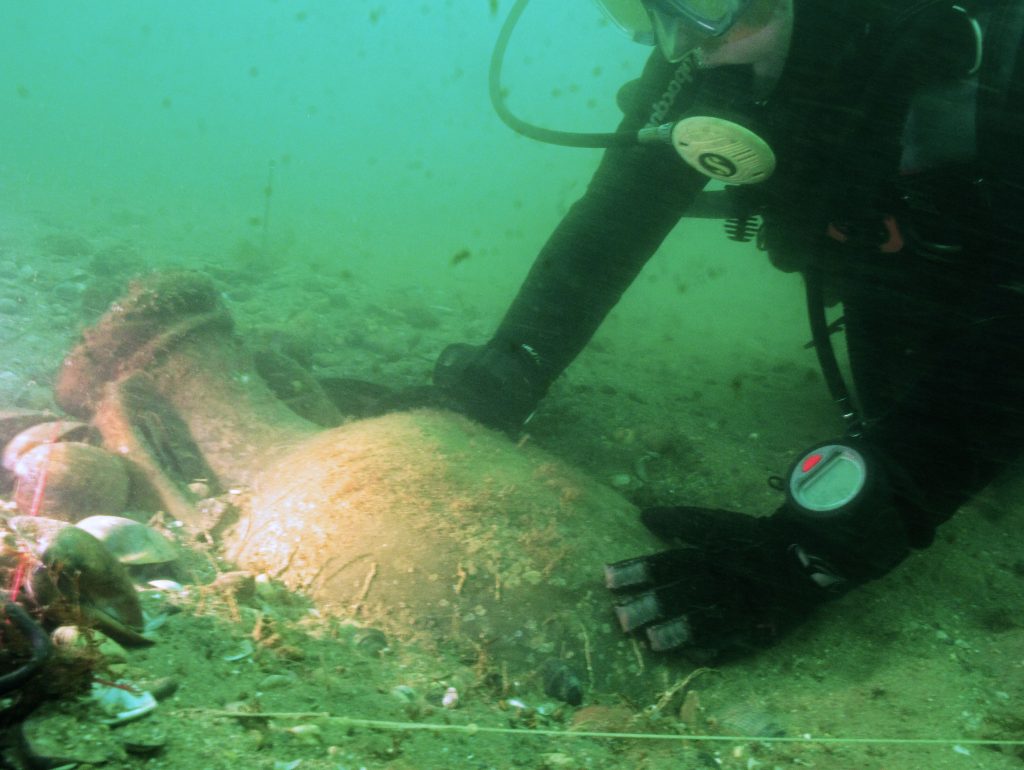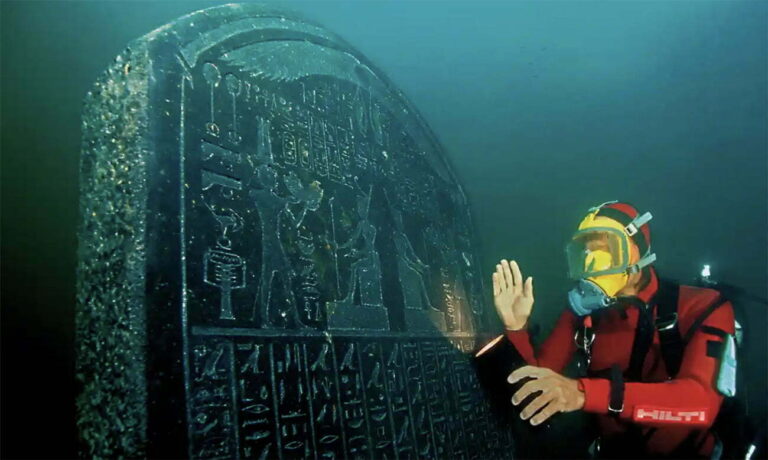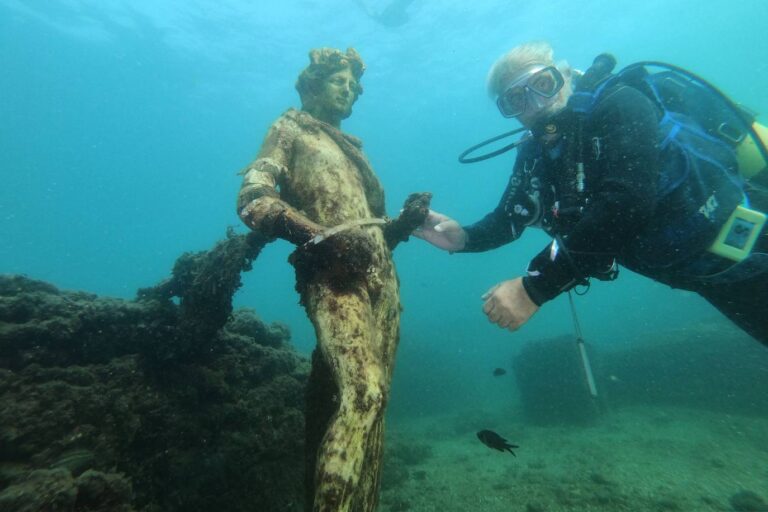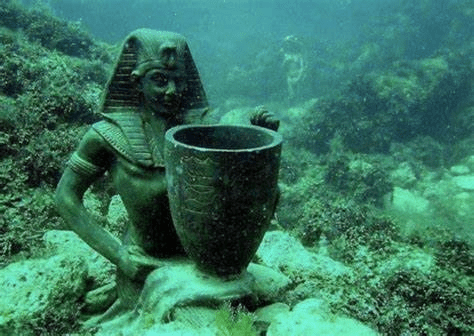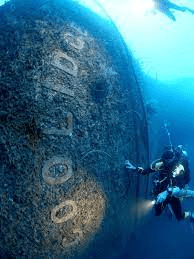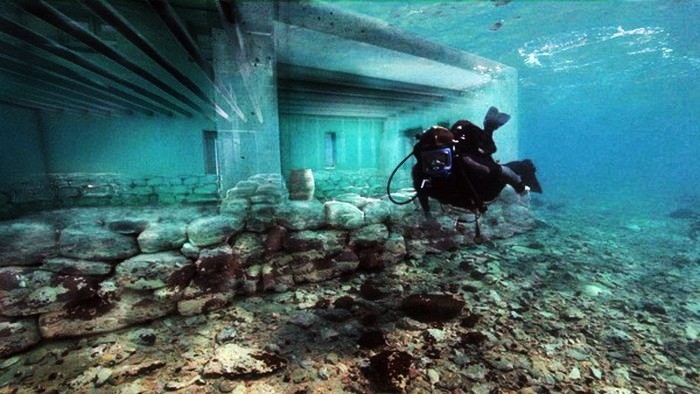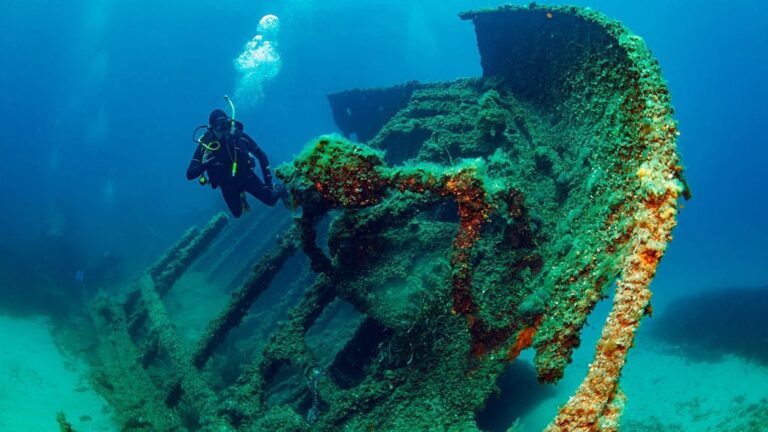Surprising Underwater Discoveries: What Do They Reveal?
Underwater discoveries have always captivated our imagination and revealed hidden wonders of the deep. The significance of these discoveries goes beyond their mere novelty, as they offer valuable insights into our past, the biodiversity of our oceans, and the interconnections between humans and the underwater world. The allure of exploring the unknown depths has led explorers to embark on remarkable journeys, unveiling astonishing secrets beneath the sea.
Table of Contents
Historical Significance of Underwater Discoveries
Underwater discoveries hold immense historical significance, providing us with valuable insights into past civilizations and their cultures. Through the exploration of ancient shipwrecks and lost cities, we gain a deeper understanding of human history and the way societies once thrived.
The exploration and excavation of underwater sites have revealed famous archaeological finds that have captivated the world. Ancient shipwrecks, like the Titanic, not only unveil the horrors of tragic events but also give us a glimpse into the lifestyles and technologies of the time. These sunken vessels serve as time capsules, preserving artifacts and evidence of past maritime activities.
Moreover, the discovery of lost cities submerged beneath the sea presents an even more profound view of ancient civilizations. Sites such as Atlantis and Thonis-Heracleion were once thriving metropolises, complete with their own unique cultures, architectures, and economies. By studying these submerged cities, we can piece together the puzzle of ancient societies, debunk historical myths, and uncover forgotten knowledge.
In addition to enriching our understanding of the past, these underwater discoveries also shed light on the interconnectedness of civilizations. They reveal the extent of ancient trade routes, the exchange of ideas, and the influences that shaped societies. By studying various artifacts and remains, archaeologists can discern the cultural ties between different regions and the vast historical networks that spanned the globe.
In conclusion, underwater discoveries possess immense historical importance as they allow us to uncover the hidden stories of past civilizations. The exploration of ancient shipwrecks and lost cities offers a unique window into the past, providing insights into daily life, technology, trade, and the interconnectedness of human societies. By studying these submerged treasures, we can paint a more comprehensive and accurate picture of our collective history.
Marine Biodiversity and Ecosystems
The world’s oceans are home to incredible biodiversity, housing a vast array of species that have yet to be fully explored and understood. Underwater discoveries play a crucial role in expanding our knowledge of marine species, revealing hidden treasures and secrets that were once inaccessible. These discoveries not only captivate the imagination of researchers and ocean enthusiasts but also provide valuable insights into the delicate balance and interconnectedness of marine ecosystems.
Exploring the depths of the sea unveils a plethora of species that range from colorful corals to majestic whales. It is estimated that our oceans contain millions of species, many of which have yet to be discovered and named. Underwater discoveries, such as the exploration of deep-sea trenches and the mapping of previously uncharted areas, provide valuable opportunities for scientists to observe and study these elusive creatures. New species are continually being discovered, helping to paint a more complete picture of the complex web of life that thrives beneath the waves.
These underwater discoveries also shed light on the unique marine ecosystems that exist in different parts of the world. From the Great Barrier Reef in Australia to the kelp forests in California, each ecosystem has its own intricate balance of species and interactions. Understanding these ecosystems is crucial for the conservation and management of marine resources. The services provided by marine ecosystems, such as oxygen production, carbon sequestration, and the protection of coastlines, are vital for the health of our planet.
The study of marine ecosystems through underwater discoveries also allows scientists to better understand the threats these ecosystems face and develop strategies for their protection. Coral bleaching, caused by rising ocean temperatures, is an alarming consequence of climate change that affects not only the corals themselves but also the entire ecosystem they support. By studying the impact of climate change on these ecosystems, researchers can develop targeted conservation efforts to mitigate these effects and protect marine biodiversity.
In conclusion, underwater discoveries continue to expand our knowledge of marine biodiversity and ecosystems. By exploring the world’s oceans, we uncover an astounding array of species and gain insight into the delicate interconnectedness of marine ecosystems. These discoveries highlight the need for continued scientific exploration, conservation efforts, and responsible management of our precious underwater treasures. The future of underwater discoveries holds promise, as advancements in technology and ongoing research projects provide exciting prospects for unlocking even more secrets from the depths of the seas. As we deepen our understanding of the underwater world, we must strive to protect and preserve these invaluable ecosystems for the benefit of both current and future generations.
Unearthed Treasures: Sunken Artifacts and Precious Cargo
The search for sunken treasures and artifacts is an exhilarating and thrilling endeavor. Imagine the excitement of stumbling upon a long-lost shipwreck, filled with precious cargo hidden deep beneath the sea. This intricate and meticulous process involves a combination of dedicated explorers, advanced technologies, and innovative methods.
Underwater salvage operations, also known as marine archaeology, employ various techniques to recover valuable artifacts from the depths. These methods include remotely operated vehicles (ROVs), which are equipped with cameras and robotic arms, allowing explorers to navigate and retrieve treasures with precision. Diving expeditions also play a crucial role, with divers descending into the depths to physically recover artifacts.
One of the most fascinating aspects of uncovering sunken treasures is the wide range of valuable discoveries that can be found. Gold coins, ancient ceramics, and intricate jewelry are just a few examples of the precious cargo that lies waiting to be unearthed. These priceless artifacts not only possess tremendous historical and cultural value but also provide a glimpse into the past civilizations that created them.
These treasure-laden ships that once sailed the seas are windows into a world long gone, revealing the intricate trade networks and exchanges between different civilizations. The recovery and preservation of these artifacts enable historians and archaeologists to piece together the puzzle of history and gain a deeper understanding of the past.
However, the process of salvaging sunken treasures is not without its challenges. The underwater environment, with its harsh conditions and potential dangers, poses significant obstacles. Corrosion, deterioration, and damage caused by marine organisms can make the retrieval process delicate and complex.
Despite these challenges, the rewards of discovering and preserving these underwater treasures are immense. Not only do they provide valuable insights into past cultures and trade routes, but they also captivate the public’s imagination, sparking wonder and fascination for the hidden depths of our planet.
In conclusion, the excitement of uncovering sunken treasures and artifacts is an awe-inspiring adventure. The use of advanced methods and technologies, combined with the dedication of explorers, allows us to unearth these precious finds. Gold, ceramics, jewelry, and many other relics provide a valuable link to our history. By delving into the depths and shedding light on these underwater treasures, we can piece together the stories of the past and gain a deeper appreciation for the wonders that lie beneath the sea’s surface.
Solving Historical Mysteries
Underwater discoveries have proven to be instrumental in solving historical mysteries, providing valuable insights into our past. Through meticulous exploration and careful retrieval, archaeologists have been able to piece together the puzzle of history by uncovering important artifacts and documents from sunken ships and submerged sites.
These underwater discoveries have shed light on various historical events, allowing us to better understand the people, cultures, and societies of the past. By examining the wreckage of ships, archaeologists have been able to retrieve important historical documents and archives that were once thought to be lost forever beneath the sea. These remarkable finds have helped fill in the gaps of our knowledge and correct historical narratives.
One such example is the discovery of the wreck of the RMS Titanic. The exploration of this iconic shipwreck has not only provided a wealth of information about the ship itself, but it has also allowed historians to gain a deeper understanding of the people who were on board and the tragic events that led to its sinking. The retrieval of personal items and documents from the wreckage has helped bring the stories of the passengers and crew to life, allowing us to connect with the human side of this historical event.
Another notable discovery is the Antikythera mechanism, an ancient Greek analog computer found in a shipwreck off the coast of the Greek island of Antikythera. This intricate device has provided valuable insights into ancient Greek astronomy and technology, challenging previous assumptions about the knowledge and capabilities of ancient civilizations.
These underwater discoveries continue to change our understanding of history and challenge our preconceived notions. They underscore the importance of underwater exploration and the need to preserve these valuable sites for future generations. By carefully studying and documenting these discoveries, we can ensure that the mysteries of the past are unravelled and that our historical narratives are constantly evolving.
Conservation and Environmental Impact
Preserving underwater treasures is of utmost importance to ensure the continued study and understanding of our past. These discoveries hold valuable information about human history and culture, and it is our responsibility to protect and conserve them for future generations.
One of the major threats faced by underwater sites and ecosystems is climate change. Rising sea levels and increased water temperatures can have devastating effects on these delicate environments. Coral reefs, for example, are highly sensitive to changes in temperature and are already experiencing bleaching events. This not only affects the incredible biodiversity they hold but also damages the overall ecosystem and the services it provides.
Pollution is another significant threat to underwater treasures. Human activities, such as oil spills and waste dumping, can have severe consequences for marine life and habitats. Plastic pollution also poses a significant risk, as it can entangle marine animals and find its way into their stomachs, causing harm and even death.
To mitigate these threats, responsible exploration and conservation efforts are essential. This includes promoting sustainable practices and regulations for underwater exploration and salvage operations. It also involves raising awareness about the importance of preserving these treasures and the impact that our actions have on the underwater world.
Efforts to establish marine protected areas and implement sustainable fishing practices are crucial steps towards conserving underwater ecosystems. These protected areas can help safeguard vulnerable species and habitats, allowing them to thrive and contribute to the overall health of our oceans.
In conclusion, preserving underwater treasures is not only necessary for the preservation of our past but also for the protection of our future. The threats posed by climate change, pollution, and irresponsible practices highlight the urgent need for responsible exploration and conservation initiatives. By valuing and protecting these underwater wonders, we can ensure that future generations have the opportunity to learn from and be inspired by the mysteries that lie beneath the sea.
Future of Underwater Discoveries
As we continue to explore the depths of our oceans, the potential for more surprising underwater discoveries is undeniable. With advancements in technology, underwater exploration is becoming more efficient and accessible, offering new opportunities for research and discovery.
The development of advanced diving equipment and submersibles allows scientists and explorers to reach depths that were once thought to be unreachable. These technological advancements have revealed a whole new world beneath the waves, with countless hidden treasures waiting to be discovered.
In addition to improved diving equipment, the use of remotely operated vehicles (ROVs) and autonomous underwater vehicles (AUVs) has revolutionized the way we explore the underwater world. These robots can reach even greater depths and provide high-quality imaging and data collection capabilities, allowing researchers to study and document underwater sites with unprecedented precision.
Ongoing research and projects are dedicated to uncovering more of the secrets that lie beneath the sea. Archaeologists and marine scientists are working together to excavate and document ancient shipwrecks, lost cities, and other underwater sites of historical importance. Each new discovery provides valuable insights into our past and helps rewrite the history books.
Furthermore, advancements in molecular biology and genetic sequencing techniques have allowed researchers to better understand marine biodiversity. By studying the DNA of marine species, scientists can uncover new species and gain a deeper understanding of the intricate web of life that exists within our oceans. This knowledge is crucial for managing and conserving our marine ecosystems.
The future of underwater discoveries holds immense potential. With ongoing advancements in technology and the increasing interest in exploring the mysteries that lie beneath the waves, we can expect to make even more groundbreaking discoveries in the years to come. From uncovering ancient civilizations to studying marine ecosystems and understanding our own history, underwater exploration continues to captivate and inspire. It is a reminder of the countless wonders that our planet holds, waiting to be revealed.
Conclusion
In conclusion, underwater discoveries hold an immense significance in understanding our past, present, and future. Throughout history, these findings have provided valuable insights into ancient civilizations and their way of life. The historical importance of underwater discoveries cannot be overstated, as they have allowed us to unlock the mysteries of lost cities and ancient shipwrecks.
Moreover, these discoveries have expanded our knowledge of marine biodiversity and ecosystems. The ocean is teeming with life, and underwater exploration plays a crucial role in expanding our understanding of the unique species and ecosystems that call it home. By studying these marine habitats, we can better appreciate the services they provide to the planet, such as oxygen production and climate regulation.
One of the most exciting aspects of underwater discoveries is the unearthing of sunken treasures and artifacts. These invaluable precious cargos shed light on different cultures and time periods, providing a tangible link to our shared history. Thanks to advancements in technology and underwater salvage operations, we can now recover these artifacts with precision and care.
However, it’s important to note that underwater treasures and ecosystems are under constant threat. Conservation efforts are crucial to preserve these valuable sites and protect marine biodiversity from the impacts of climate change and pollution. Responsible exploration and the promotion of sustainable practices are essential in ensuring that future generations can continue to unravel the secrets of the underwater world.
In conclusion, the future of underwater discoveries looks promising. Advancements in technology continue to revolutionize underwater exploration, allowing us to dive deeper and uncover more secrets beneath the sea. Ongoing research and projects are dedicated to uncovering the remaining mysteries and further expanding our knowledge of the underwater world.
In the grand scheme of things, humanity’s relationship with the underwater world is both fascinating and complex. As we continue to explore and make surprising underwater discoveries, it is our duty to approach these findings with humility, curiosity, and above all, a commitment to preserving and conserving the wonders that lie beneath the waves.

